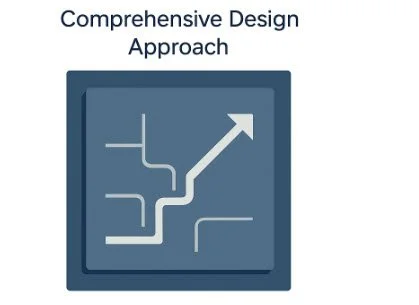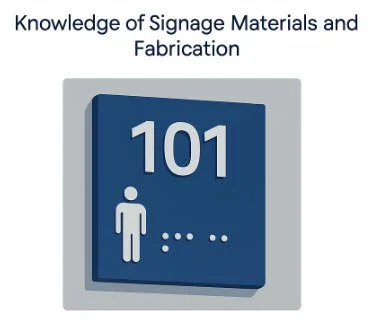Maximizing Signage in Architecture
Impact Signage
Published: October 10, 2024

Modern commercial architecture elevated by integrated signage solutions — where design and functionality meet.
In the field of commercial architecture and design, the visual appeal and functionality of a commercial building frequently depend on the careful integration of signage and other various elements.
Signage plays a key role in giving a building its personality, guiding people, and providing important information. However, the design process for making effective signs is often overlooked. Ignoring it can lead to missed opportunities for creativity and functionality. By teaming up with the sign design and production experts at Plumb Signs Inc, architects and designers can ensure their signage strategies bring lasting impact.
Comprehensive Design Approach
Signage serves more than just an aesthetic purpose; it is essential for functionality. An effective wayfinding program can significantly improve the user experience, guiding visitors through complex environments. By collaborating with signage specialists, architects can design intuitive navigation systems that complement the building’s layout, ensuring signage is both informative and strategically placed.

Comprehensive design: wayfinding and architecture working together from day one.
Enhanced Functionality
Well-crafted signs greatly enhance user experience by guiding visitors through intricate spaces. By partnering with signage experts, architects can develop intuitive systems that align with design, ensuring signs are strategically positioned and manufactured to overcome installation challenges from the start.

Enhanced functionality: clear directional signage that speeds wayfinding.
Knowledge of Signage Materials and Fabrication
Effective signage requires deep knowledge of materials and fabrication techniques. Signage designers and fabricators bring expertise in durability, visibility, and upkeep. Early collaboration allows for choosing materials that not only look good but also endure weather and time — saving costs and maintenance down the road.

Materials & fabrication: durable finishes, visibility, and long-term upkeep.
Regulatory Compliance and Safety
Commercial buildings face strict regulations on signage, including safety codes, accessibility standards, and zoning laws. Working with signage experts ensures designs meet all requirements upfront, reducing the risk of costly redesigns or compliance issues later in the project.

Regulatory compliance: ADA, zoning, and safety considered from the start.
Branding and Marketing Opportunities
Signage is also a branding tool. It reflects the ethos and values of the business while delivering critical information. Partnering with sign professionals allows architects to design signage that embodies brand identity and blends seamlessly with architecture — boosting a property’s marketing appeal and attracting customers.

Brand presence: signage that extends identity beyond the doorway.
Sustainability and Innovation
Sustainability is central in modern design. Plumb Signs experts can engineer creative, eco-friendly signage solutions that reduce environmental impact while supporting long-term sustainability goals — appealing to clients who prioritize environmental responsibility.

Sustainability: efficient lighting and materials with reduced environmental impact.
Conclusion
When integrated thoughtfully, signage becomes more than a marker — it’s a functional, aesthetic, and strategic part of a building’s success. By working with Plumb Signs Inc, architects and developers can maximize design impact, simplify navigation, and showcase brand identity with signage built to last.
Ready to bring your signage project to life?
Plumb Signs delivers impactful signage from design to install — end-to-end.

